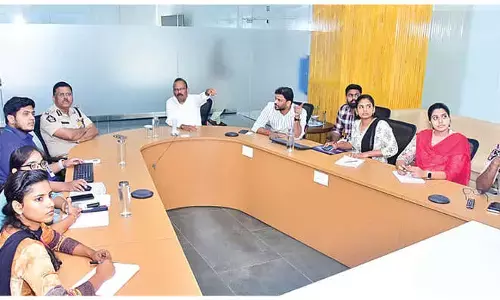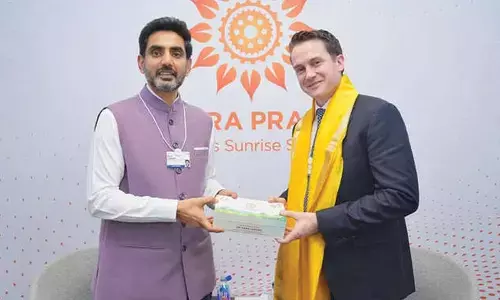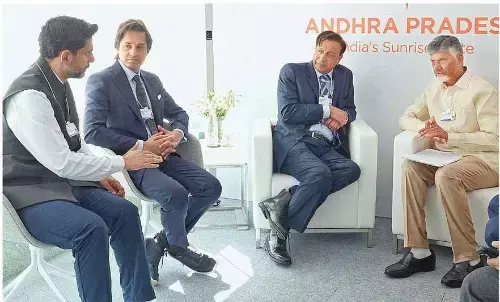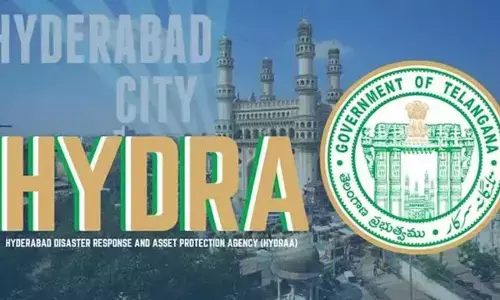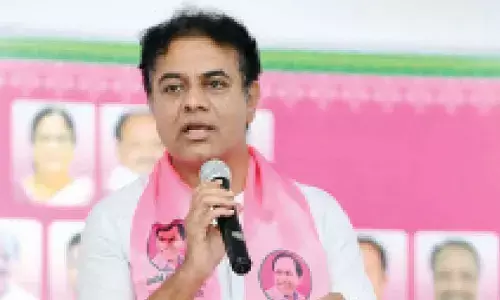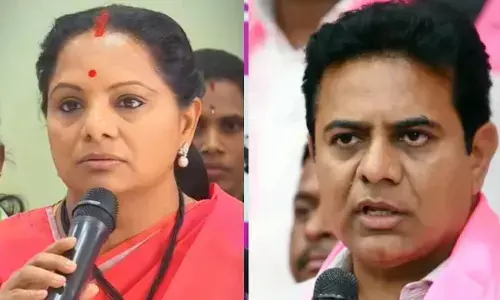10 things you might not know about India

Rajini Vaidyanathan For many people writing about India, the common clich�s of Delhi belly, lengthy traffic jams, bureaucracy, corruption and yoga retreats are the subjects that fill the column inches.
Here are 10 other observations:  1. Hardly anyone pays income tax. Only 3% of Indians pay income tax, in a population of 1.2 bn. One explanation for this is that agriculture is exempt and two-thirds of Indians live in rural areas. A large chunk of the economy is also informal, unorganised labour, for which it's harder to collect taxes. Many argue that some of the country's financial problems would be solved in one fell swoop if this massive tax hole could be filled. What can be done about India's tax black hole?
1. Hardly anyone pays income tax. Only 3% of Indians pay income tax, in a population of 1.2 bn. One explanation for this is that agriculture is exempt and two-thirds of Indians live in rural areas. A large chunk of the economy is also informal, unorganised labour, for which it's harder to collect taxes. Many argue that some of the country's financial problems would be solved in one fell swoop if this massive tax hole could be filled. What can be done about India's tax black hole?
2. The rise of the 'wedding detective' .
"It's not spying," says one woman who'd used the service to check out a prospective bridegroom for her sister. "He told us he was from a good family, but we needed to ensure he was telling the truth"
A friend of mine told me that, before his arranged marriage, he had a hunch his prospective in-laws had hired a private detective to check whether he'd had a girlfriend in the past. The answer was that he had, but the snoop (thankfully for my friend) failed to find out, and the wedding went ahead. The growth in companies offering the service is huge, with 15,000 operating. "It's not spying," says one woman who'd used the service to check out a prospective bridegroom for her sister. "He told us he was from a good family, but we needed to ensure he was telling the truth."
3. Read all about it While Western countries are mourning the demise of the newspaper, India's print industry is in fact booming. A growing literacy rate, relatively low Internet use, and the large number of languages in the country, mean more people want to pick up their daily rag. It's also very cheap to buy a newspaper, which is widening newspaper readership among all social classes. Another reason why smaller, community newspapers are also on the rise, is that with a growing economy, more people are taking out classified ads, which help to fund publications. What's also remarkable is the market in second-hand newspapers and magazines. You can sell your magazines to a man at a roadside stall, who will buy them off you and sell them again; there are people who are more than happy to read a year-old copy of the Economist, if it's more affordable than the current issue.
4. Horn noise = pneumatic drill Painted on the back of almost all lorries and trucks are the words "Horn OK, please". Honking is encouraged in India for drivers who are coming up behind another vehicle. The problem is that they're not used sparingly. One rickshaw driver told me he honked his horn at least 150 times a day, a fairly conservative estimate given that in heavy traffic they can be sounded at least once every 30 seconds. The average rickshaw horn produces a sound of around 93 decibels (close to that of a pneumatic drill), with the general sound of traffic equivalent to a jumbo jet taking off. A deafening sound, quite literally.
 5. It's a young country Young people in India are using music as a way to express self-confidence. India is a young nation. More than half of its 1.2 billion people are aged below 25, and two-thirds below 35. Many young Indians are feeling a sense of self-confidence about their nation, no longer looking to the West. Mumbai has a hipster scene to rival Brooklyn's and homegrown musical talent is flourishing, with many more shunning traditional professions and taking up a career in the arts. A music festival circuit has gigs held in fields and deserts, while major cities such as Bangalore, Delhi, Mumbai and Chennai are becoming hubs for live concerts.
5. It's a young country Young people in India are using music as a way to express self-confidence. India is a young nation. More than half of its 1.2 billion people are aged below 25, and two-thirds below 35. Many young Indians are feeling a sense of self-confidence about their nation, no longer looking to the West. Mumbai has a hipster scene to rival Brooklyn's and homegrown musical talent is flourishing, with many more shunning traditional professions and taking up a career in the arts. A music festival circuit has gigs held in fields and deserts, while major cities such as Bangalore, Delhi, Mumbai and Chennai are becoming hubs for live concerts.
 6. Everywhere you go, you see plastic chairs
6. Everywhere you go, you see plastic chairs
7. They're piling on the pounds
"Oh you've put on weight," said my bank manager with a smile on her face. Initially aghast, I eventually got used to the fact that gaining a few pounds is considered a compliment, a sign that you're looking healthy. But what surprised me was that India is now on the brink of an obesity epidemic, (not just with humans, but animals too). Stop at any service station and you'll see queues of Indians gorging on McDonalds or other processed foods. It's always been usual to see the older Indian man sporting a fat tummy (known lovingly as a paunch), and while large swathes of India still battle malnourishment, with millions starving every day, there is a general widening of waists in the cities. Some Indianisms Prepone: To bring an event or meeting forward Revert: to get back to someone Only: added to the end of sentences Out of station: Out of town You've pulled down: You've lost weight I'll do the needful: I'll do what's required They expired: They died I'm going to office: articles routinely dropped
8. The scourge of spit "We cannot believe that people don't spit. It (spitting) is an inherent character of our people. " Justice PB Majumdar of Mumbai High Court judge, has introduced a "spit inspector" to fine those who share their saliva in public. Many people spit after they've had paan (a mix of betel nut and areca, and sometimes tobacco - which is chewed, but not swallowed). This produces a reddish stain which can be seen on the side of many white walls. It's common to see "do not spit" signs in taxis, on the back of rickshaws and on the front of buildings. But there's concern the falling phlegm is responsible for the spread of tuberculosis. There's even an anti-spit campaign in the country.
9. Roadside ear cleaners Anyone who has been to India, even for a few days, will be well acquainted with the street-side economy which is a dominant part of life the country. The inventiveness and resourcefulness of people in the country is like no other - there are people who will sell or serve you in all kinds of ways. Broken an umbrella? There's a man who'll fix it. Need your shoes re-heeled? There's a man who will come to your house to do it. How about a haircut from a kerbside cutter? Then there's the serious stuff - the roadside bone setters who will repair fractures, plus the ear cleaners and the corn and bunion removal men. What's remarkable is how these centuries'-old traditions are still going strong. Some fear these traditions are under threat, with future generations choosing to pursue an education and a different path rather than follow the family business, and because some authorities are trying to move them off the pavements.
 10. Don't wear new clothes on a Saturday India might be home to some of the world's best scientists and engineers, but a lot of that rational thinking can go straight out of the window when it comes to observing ancient superstitions. Different people observe different things, such as - don't wear new clothes on a Saturday, don't clean the house at night for fear of scaring the Goddess Lakshmi away, it's bad luck to give or accept anything with your left hand.
10. Don't wear new clothes on a Saturday India might be home to some of the world's best scientists and engineers, but a lot of that rational thinking can go straight out of the window when it comes to observing ancient superstitions. Different people observe different things, such as - don't wear new clothes on a Saturday, don't clean the house at night for fear of scaring the Goddess Lakshmi away, it's bad luck to give or accept anything with your left hand.
For so many in India - rich and poor - observing these customs is still part of today's society. Brand new cars have a floral garland hanging on the bonnet because it's considered good luck to get your new vehicle blessed before you drive it. Chilli and limes hang in cars or above front doors to ward off evil. A lot of planes don't have a row 13, to avoid any association with the unlucky number.
�BBC News








